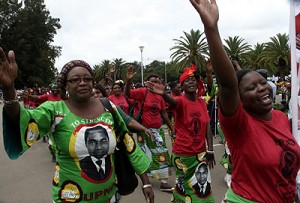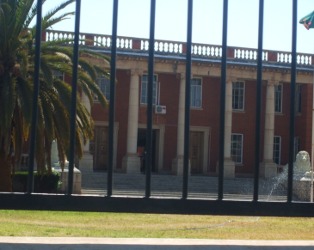THE Lusaka Boma Local Court has dismissed a case in which Munali member of Parliament Mumbi Phiri sued Lusaka Province MMD chairman William Banda for defamation.
Senior magistrate Iñutu Mulenga sitting with senior magistrates Beatrice Nasilele and Sharon Sichone said in her judgement that Mumbi failed to produce evidence despite being given adequate time and notice to do so.
The particulars of the case was that Banda accused Ms Mumbi of stealing Constituency Development Fund (CDF) meant for the community in Lusaka’s Chainda township.
Ms Mulenga said Mumbi claimed that when Banda addressed residents of Chainda, he accused her of diverting CDF funds.
She said apart from producing audio tapes, Mumbi did not have witnesses to testify to that effect.
Ms Mulenga said in her submission, Mumbi told the court that the only witnesses she had were the audio tapes.
And magistrate Mulenga said Banda denied accusing Mumbi of diverting CDF funds.
Ms Mulenga said Banda produced documents to support his statement.
She said the documents produced by Banda contained complaints from the community in Chainda on the lack of social services in the area.
Ms Mulenga said the complaints were addressed to Ministry of Local Government and Housing and not Ms Mumbi.
To this effect, Ms Mulenga dismissed the case for lack of evidence by the plaintiff.
She advised Mumbi to appeal within 30 days if she was displeased with the judgement.
[Zambia Daily Mail]








